









FILLKE PEWMA (Dreams), in Mapudungun, takes place in Santiago de Chile in the year 2092.
It has rained 40 days and 40 nights. The emergency has left several areas of the country without connection and the Mapocho river threatens to search for its lost brother, disappeared during the Spanish colony. The last survivors are looking for a chance to stay alive, while remembering their dreams and the ancient stories that announced the flood.
Will we survive the waters? Like in a pewma, we will become fish, and guided by different characters, through different spaces and times, we will go downstream, while the river makes the dream of recovering its lost course come true.


A survival kit to survive the flood and become river. In this dreamlike experience, you will walk with another body, with another memory, listening to the voices that still vibrate in the stones, the trees, and the waters. What seemed submerged may come back, like in a pewma, where past and future intertwine.
Like in a pewma, you will walk not only through space, but also through the times and imaginaries that permeate it. Each stage of the journey is a gateway to the past and the future, where the real and the dreamlike dimensions intertwine.
The two routes traverse the Sueño de la Blanquitud (Dream of Whiteness) and the Sueño del Proletariado (Dream of the Proletariat), revealing different perspectives and narratives about the city and prompting reflections on the urban form and materiality and embedded histories.
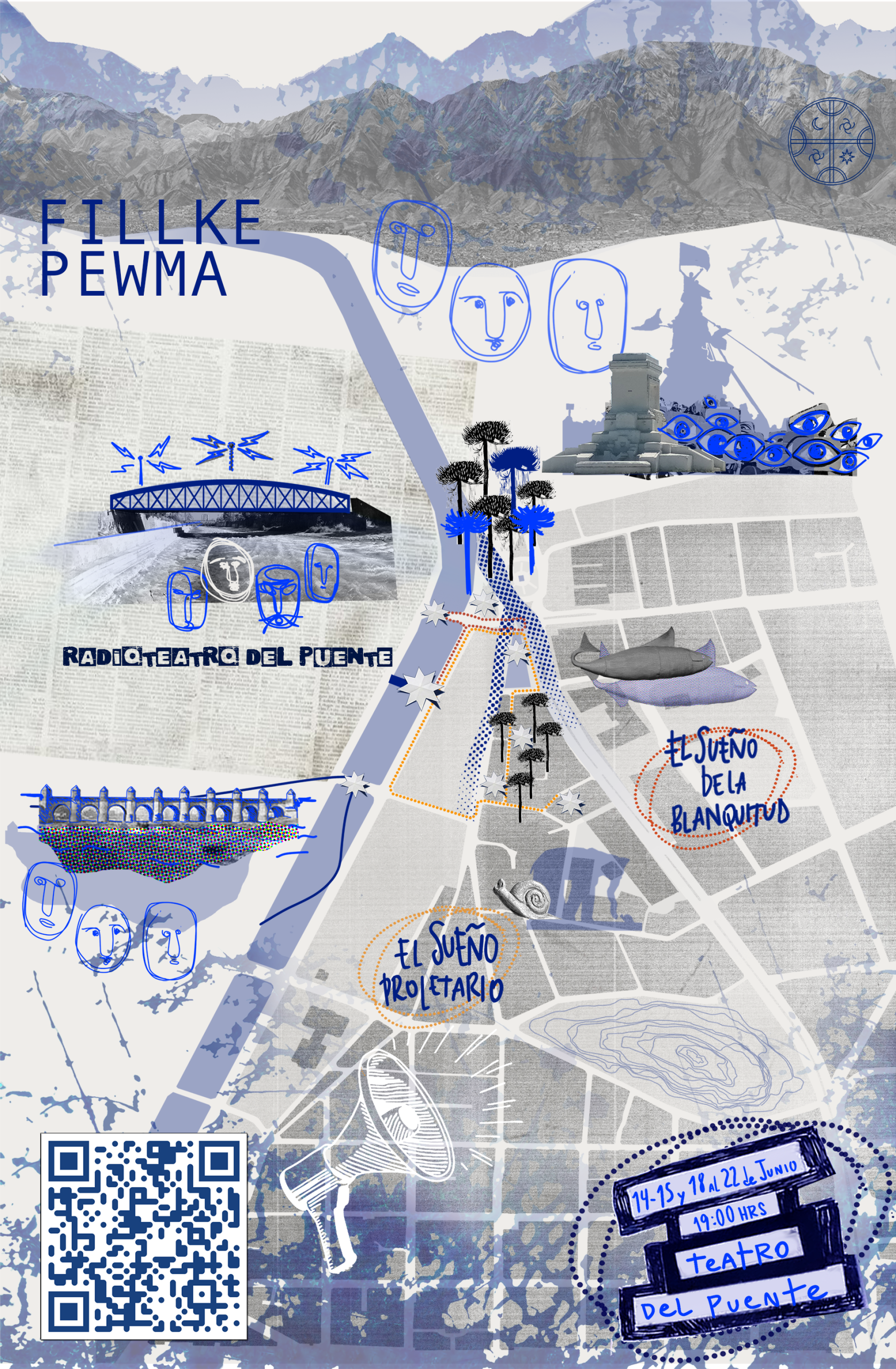
CASTAS
eL JUEGO DE LAS
CARTAS
(Card game – Caste system)
Inspired by 17th-century caste paintings —visual representations that classify interracial mixtures between Spaniards, indigenous population and people of African descent— this proposal updates and questions those colonial scenes that establish social hierarchies and racial classifications through 16 compositions characterized by contemporary objects, clothing, and actions.
From a reflective and creative perspective, new illustrations were created that critically reflect on these categories, addressing issues such as racialisation, whiteness and mestizaje in the current context. These images challenge the colonial order, shifting the scene to the urban landscape of Santiago and the Mapocho River, where the marks of the past are still intertwined with the practices of resistance in the present.
































Through digital connectors, narratives that invite the exploration of the city unfold, as if in a dream woven in layers. Following the traces left in the materiality of the urban landscape, you will connect with fragments of memory, history, and desire in a hybrid experience between the real and the virtual.
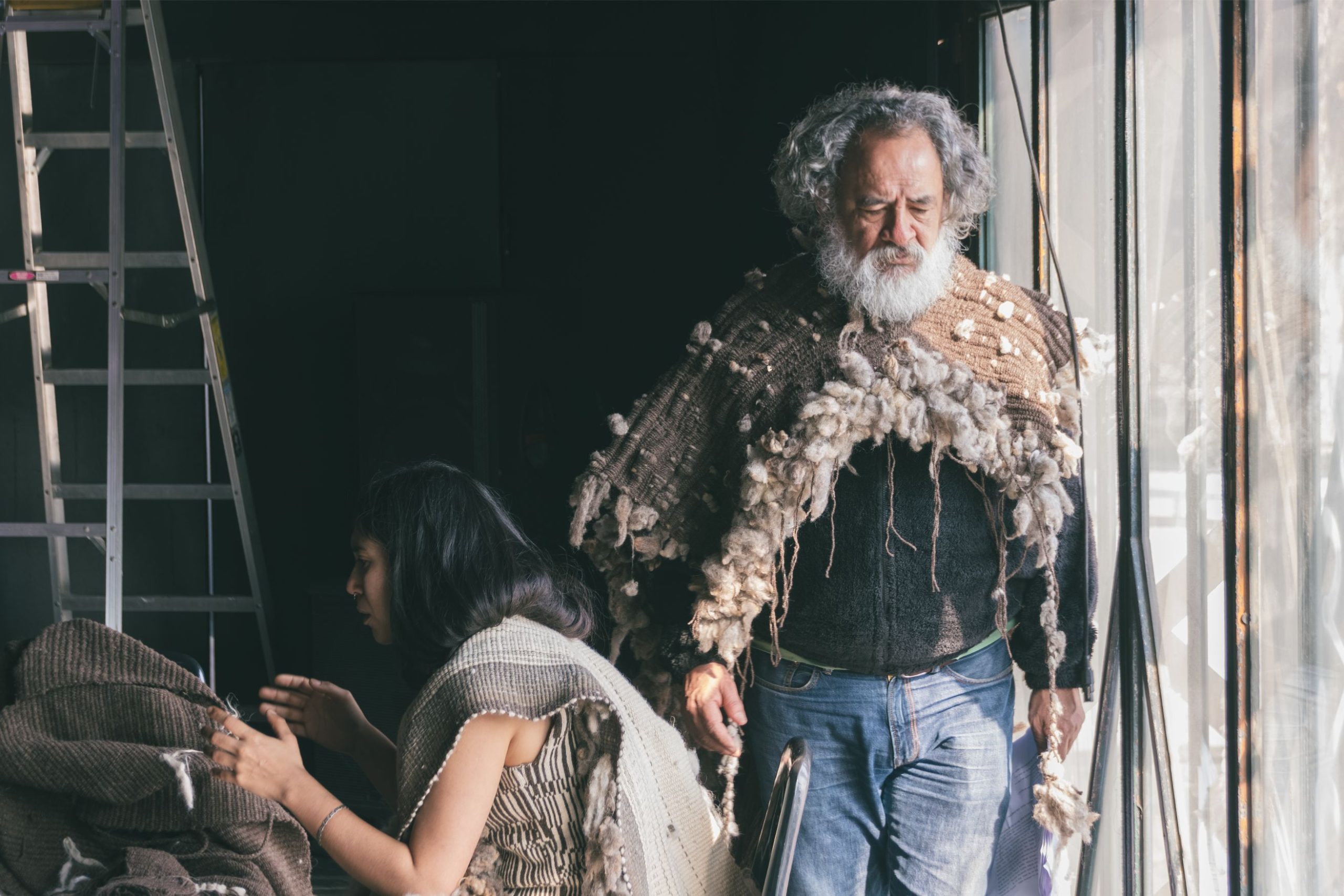





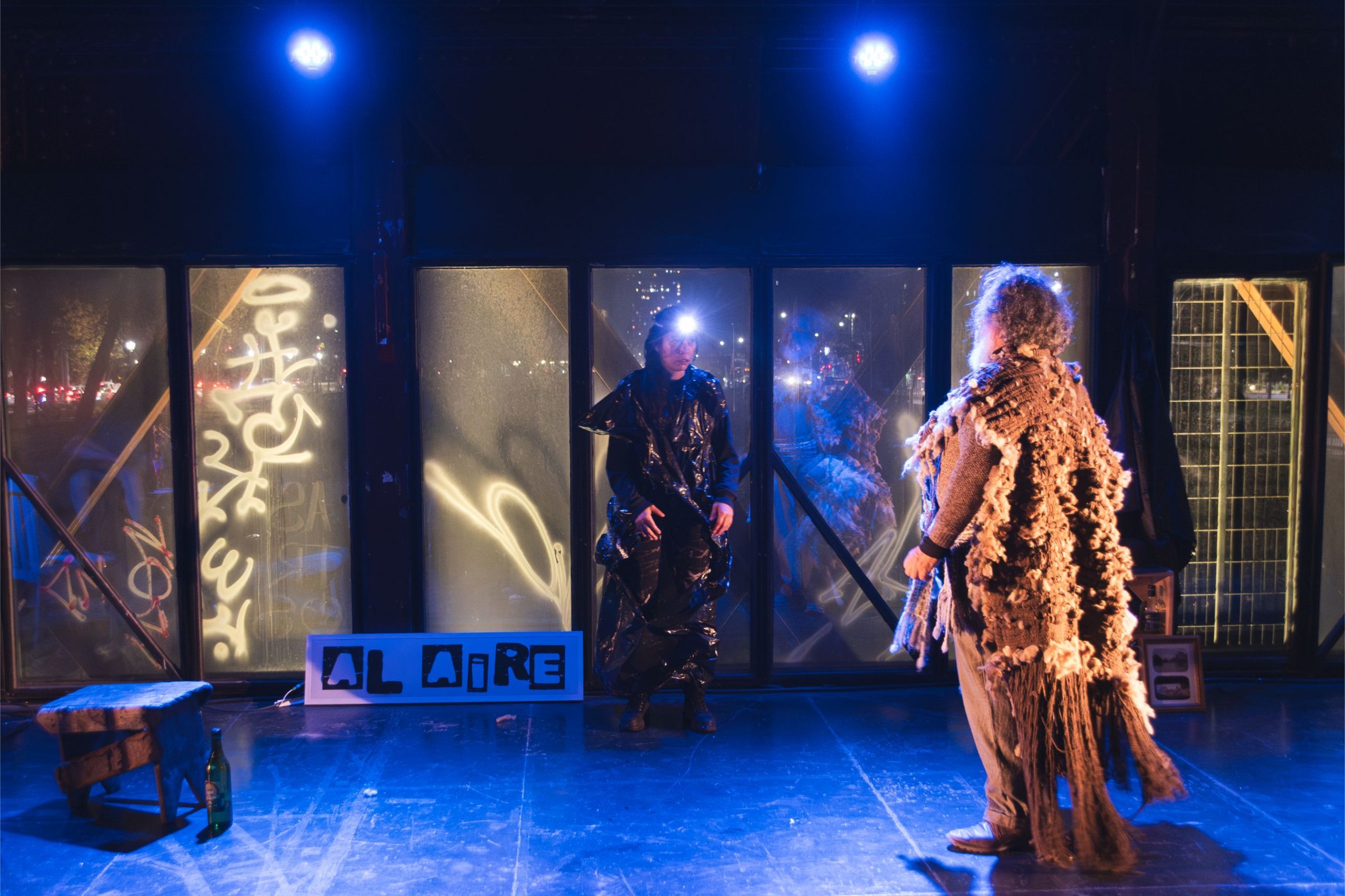
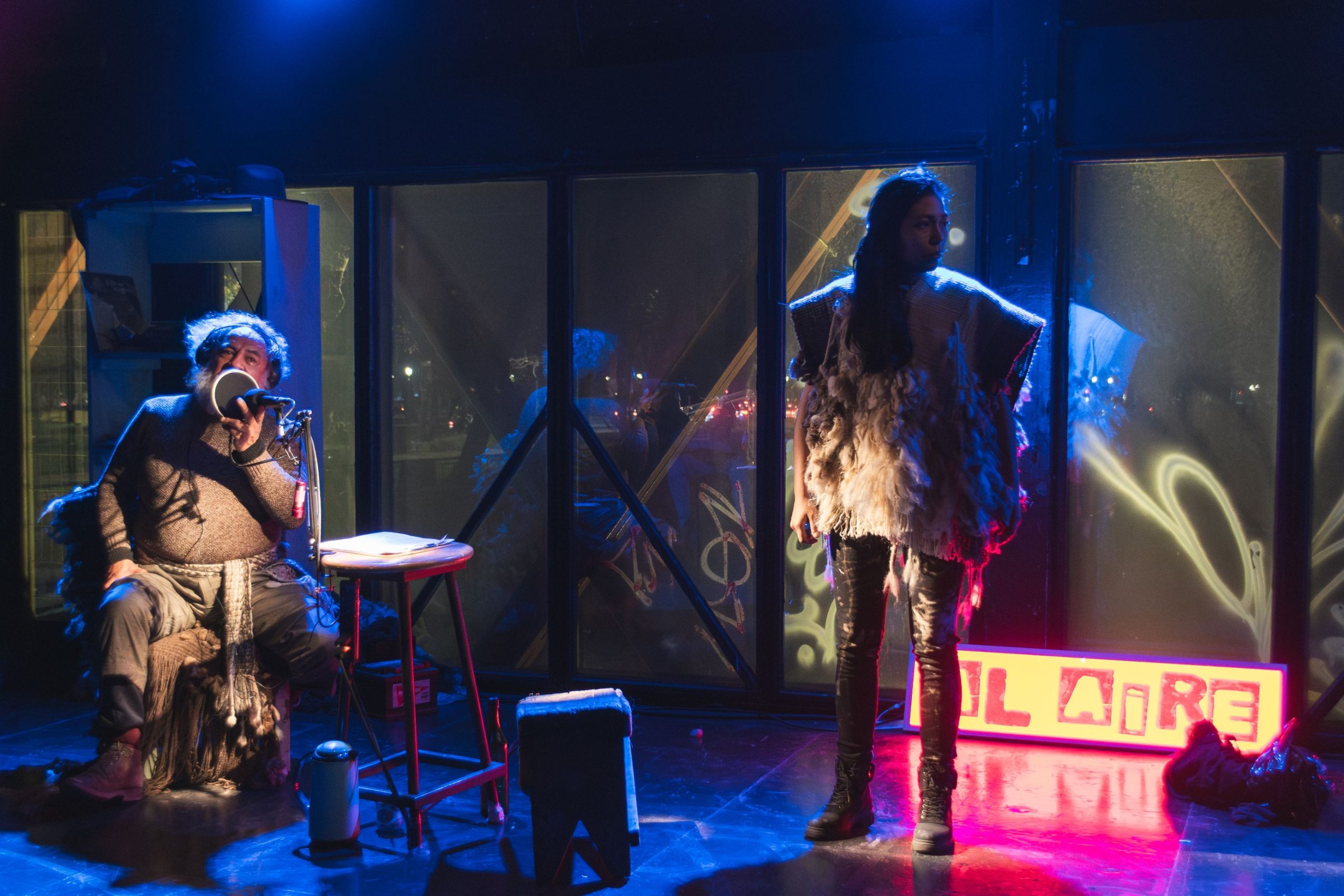
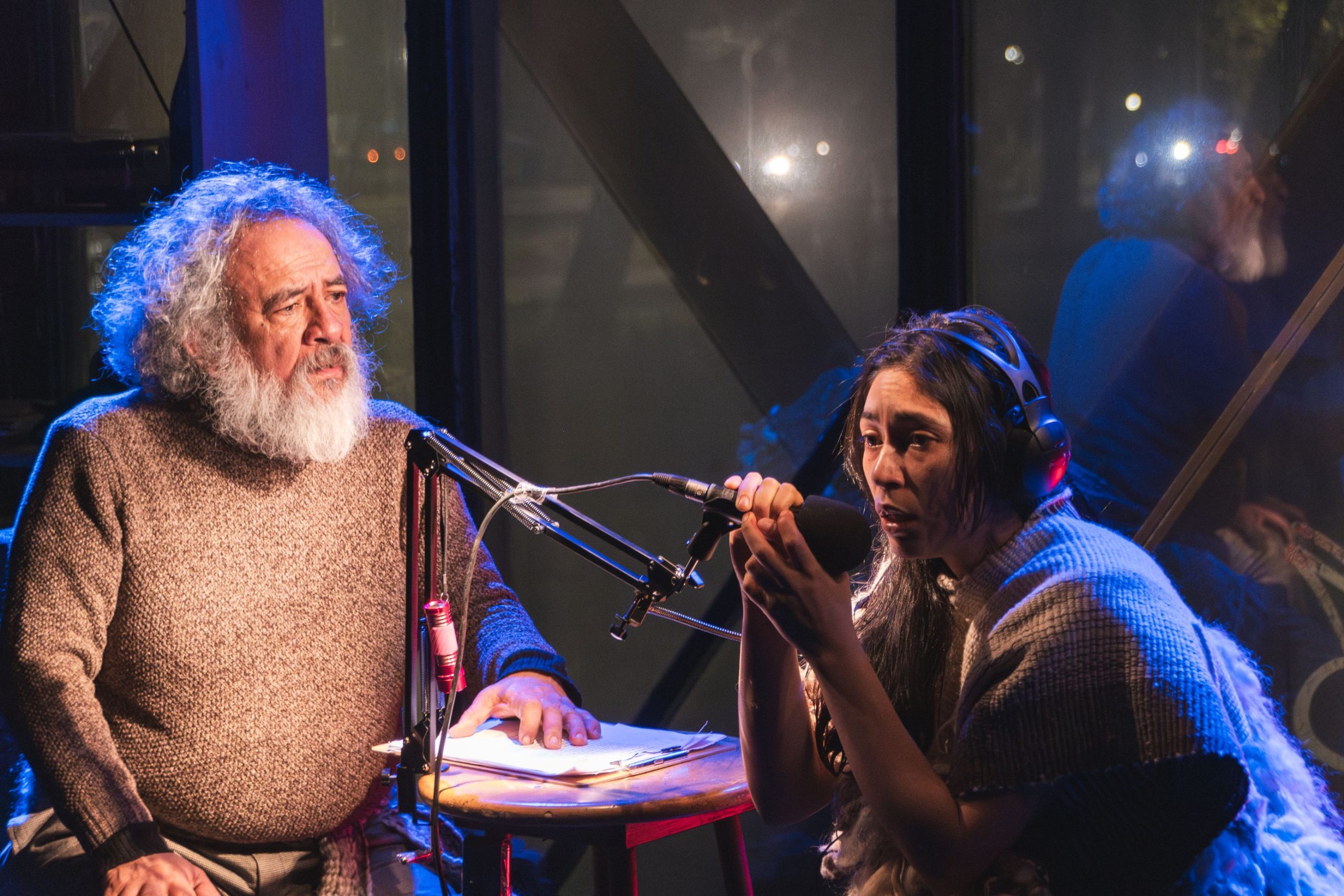


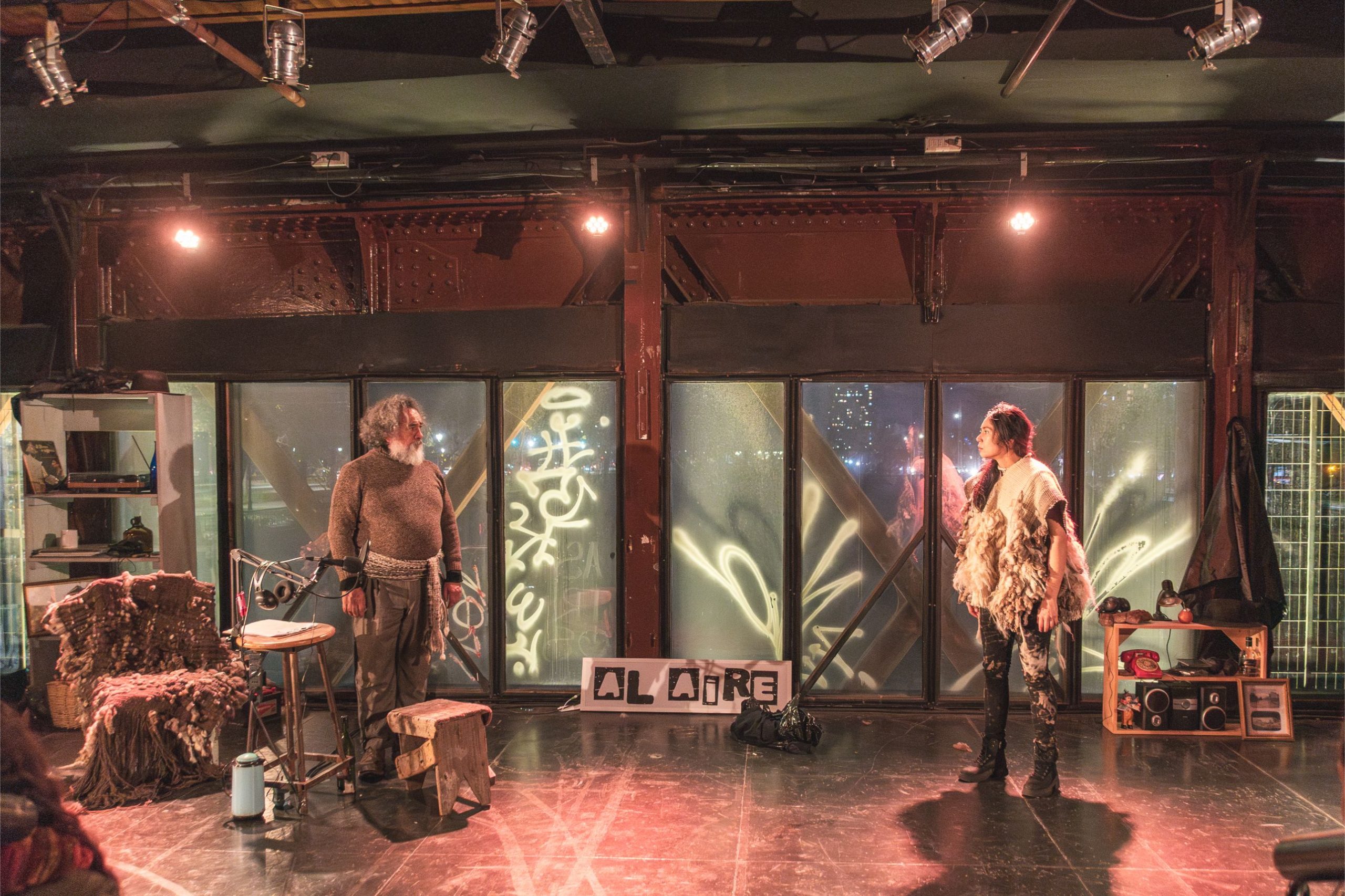
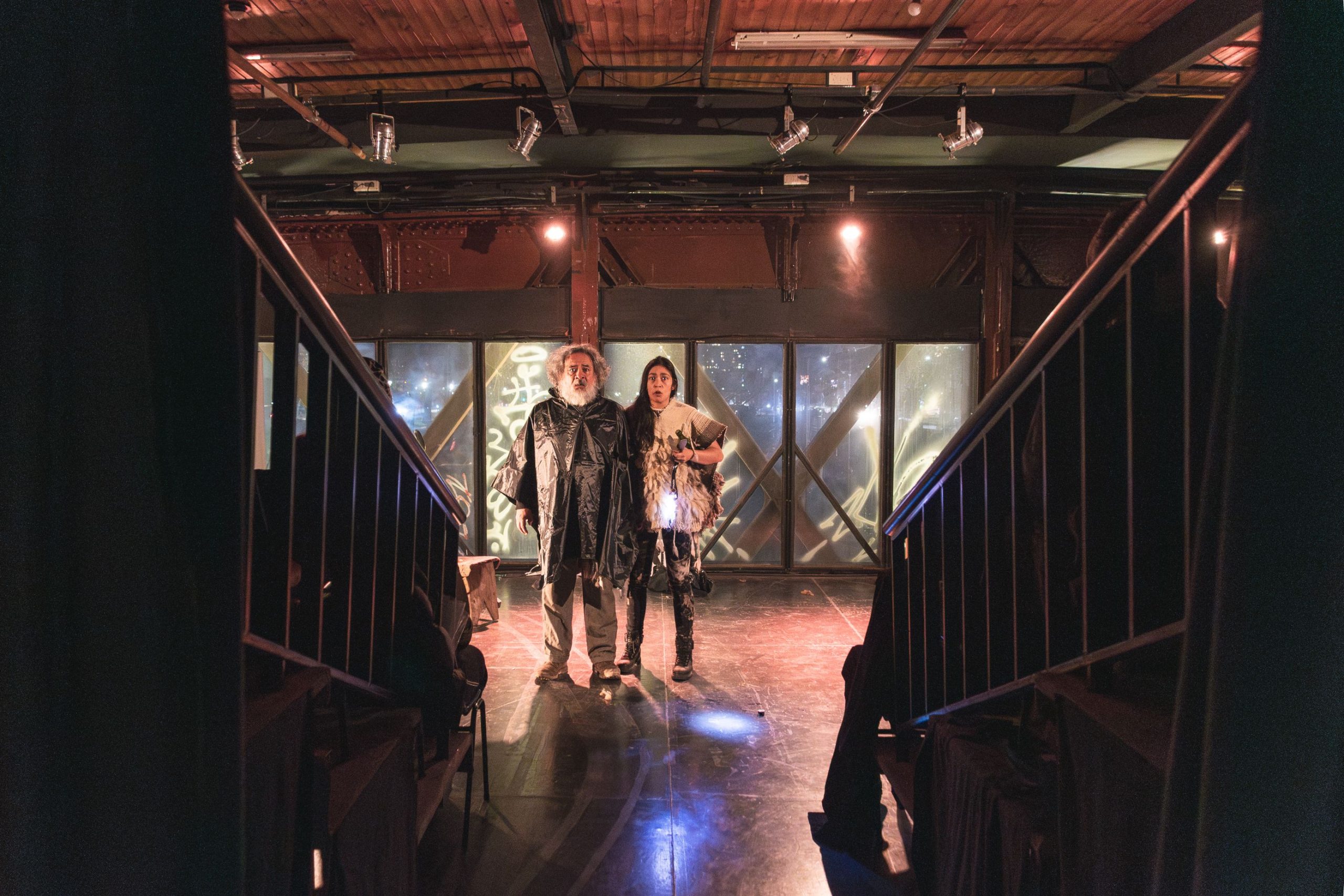
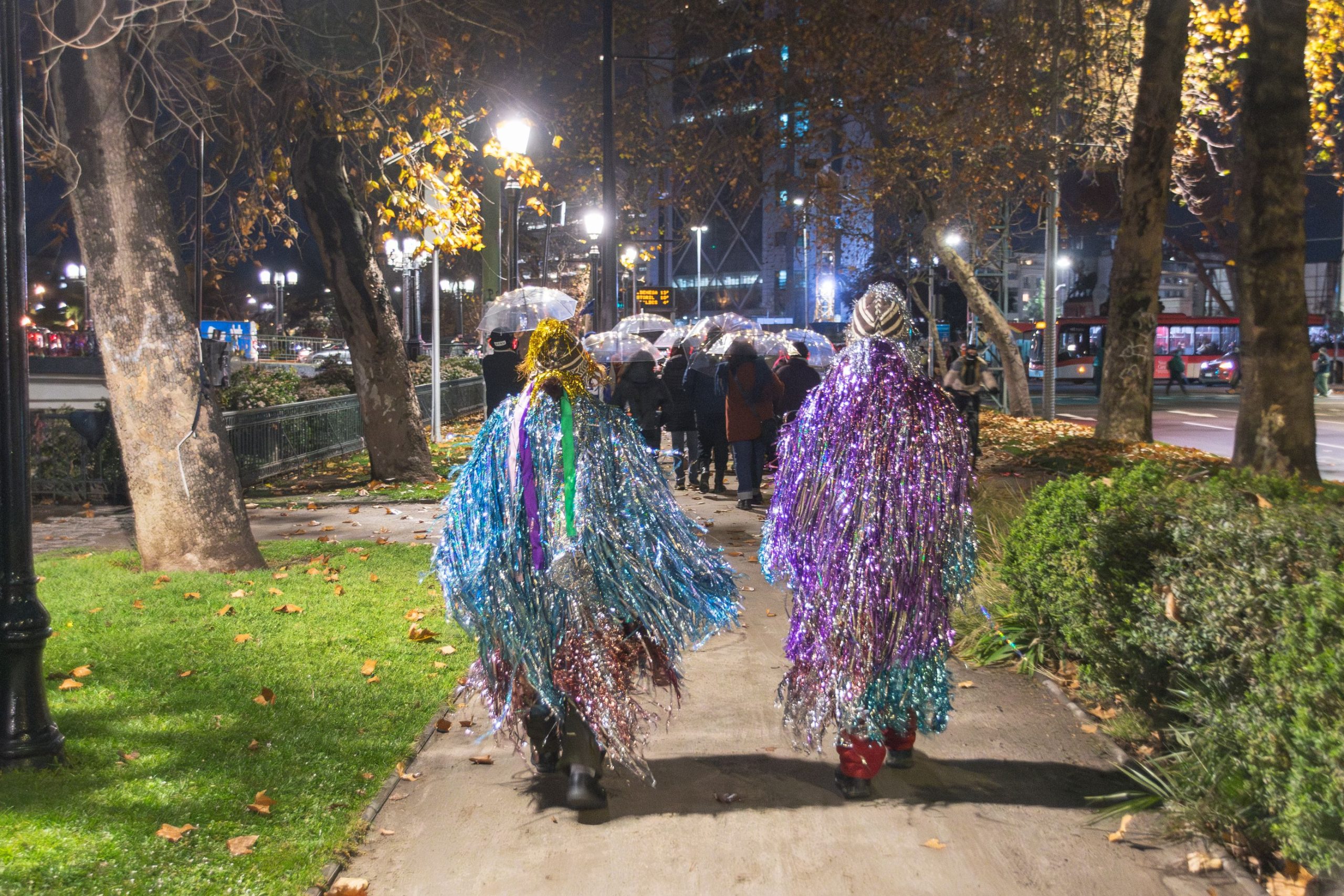
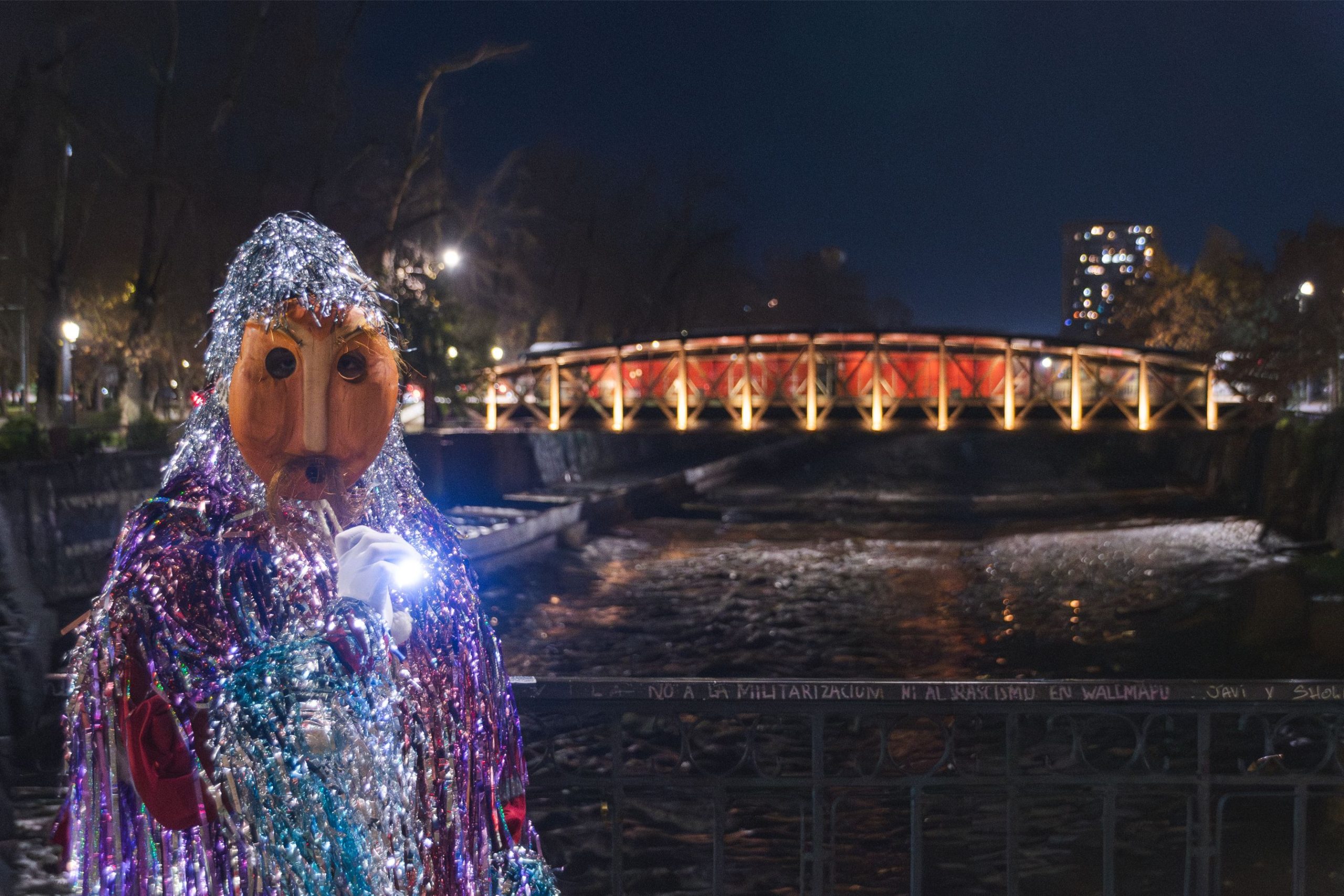

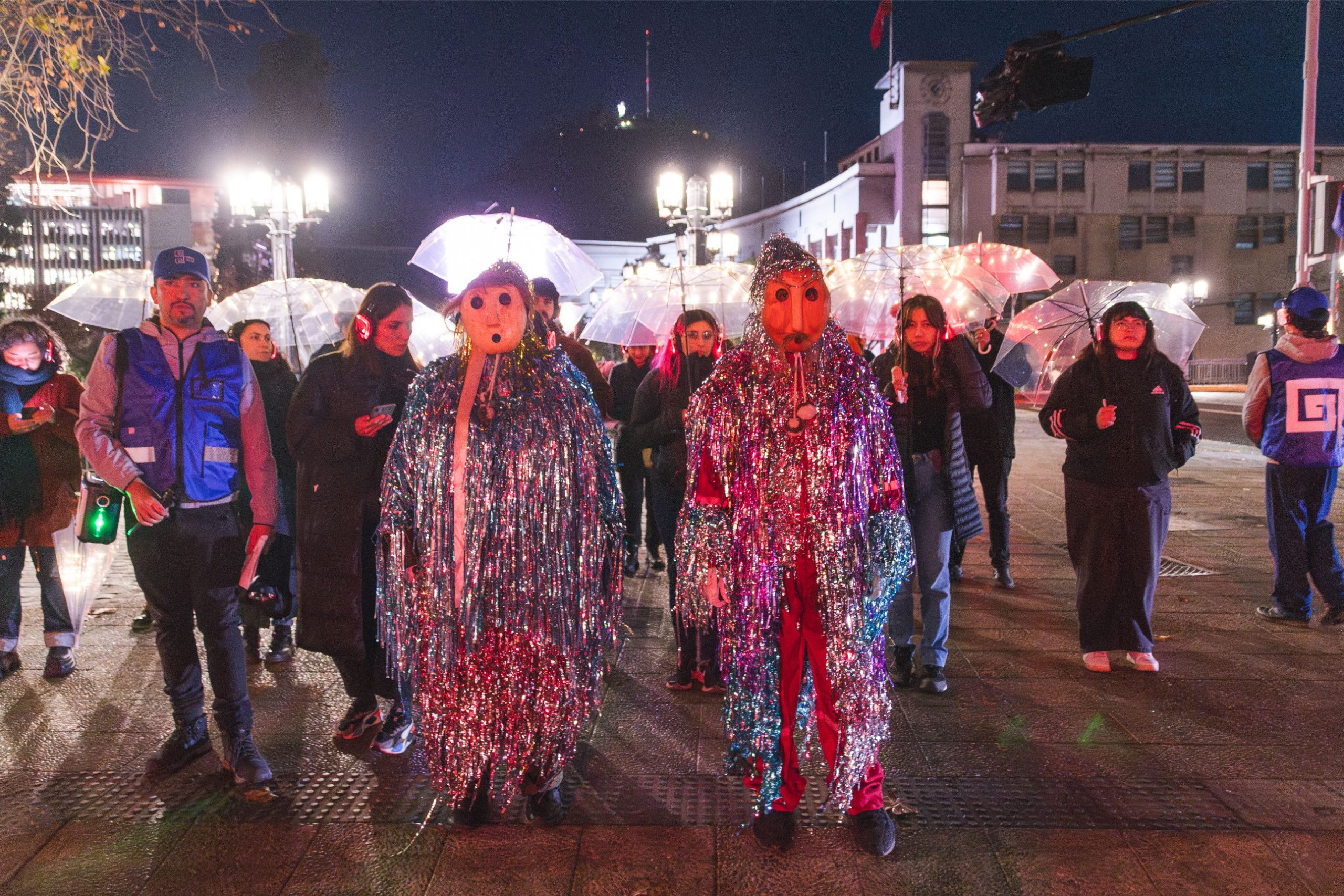

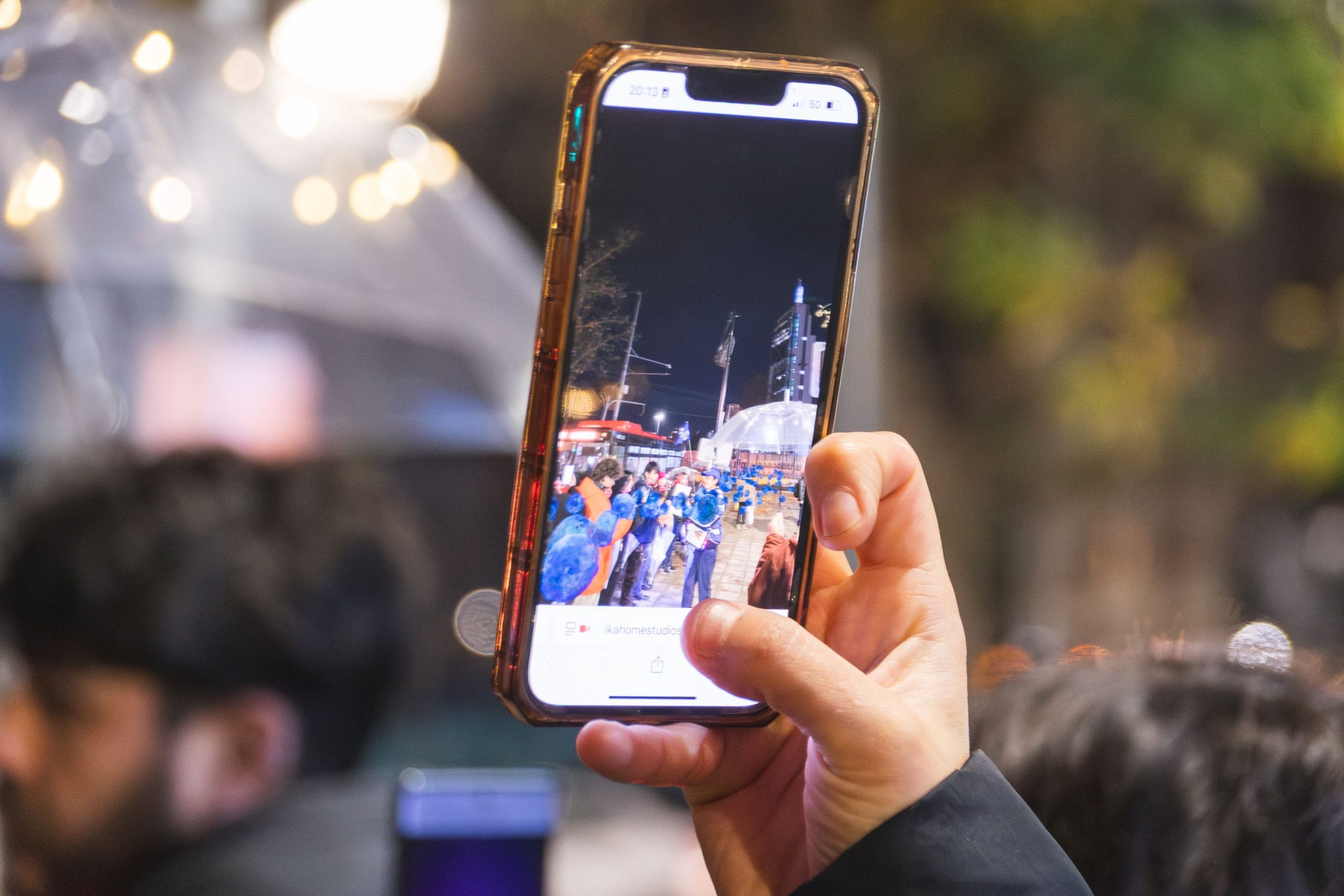


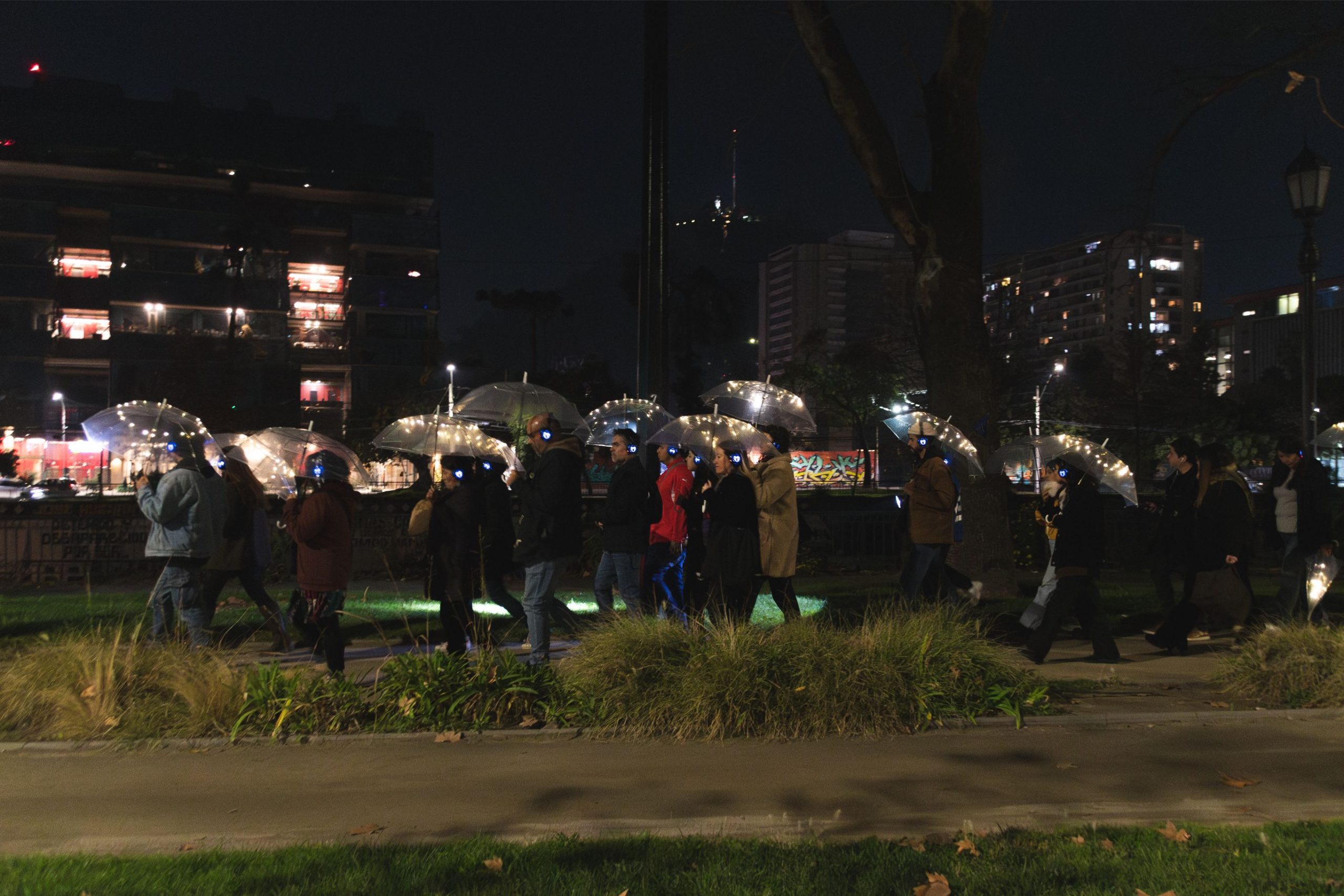
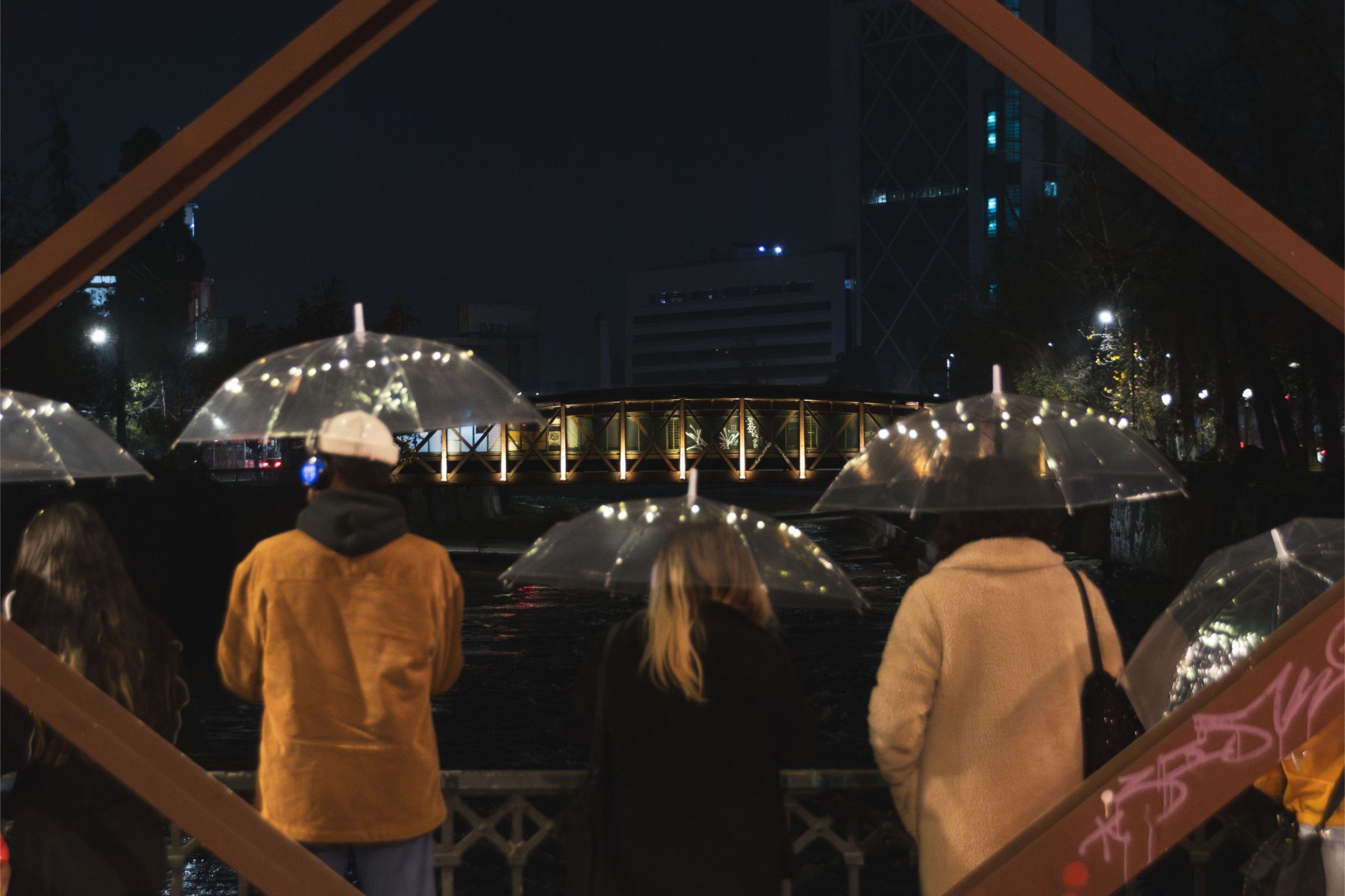
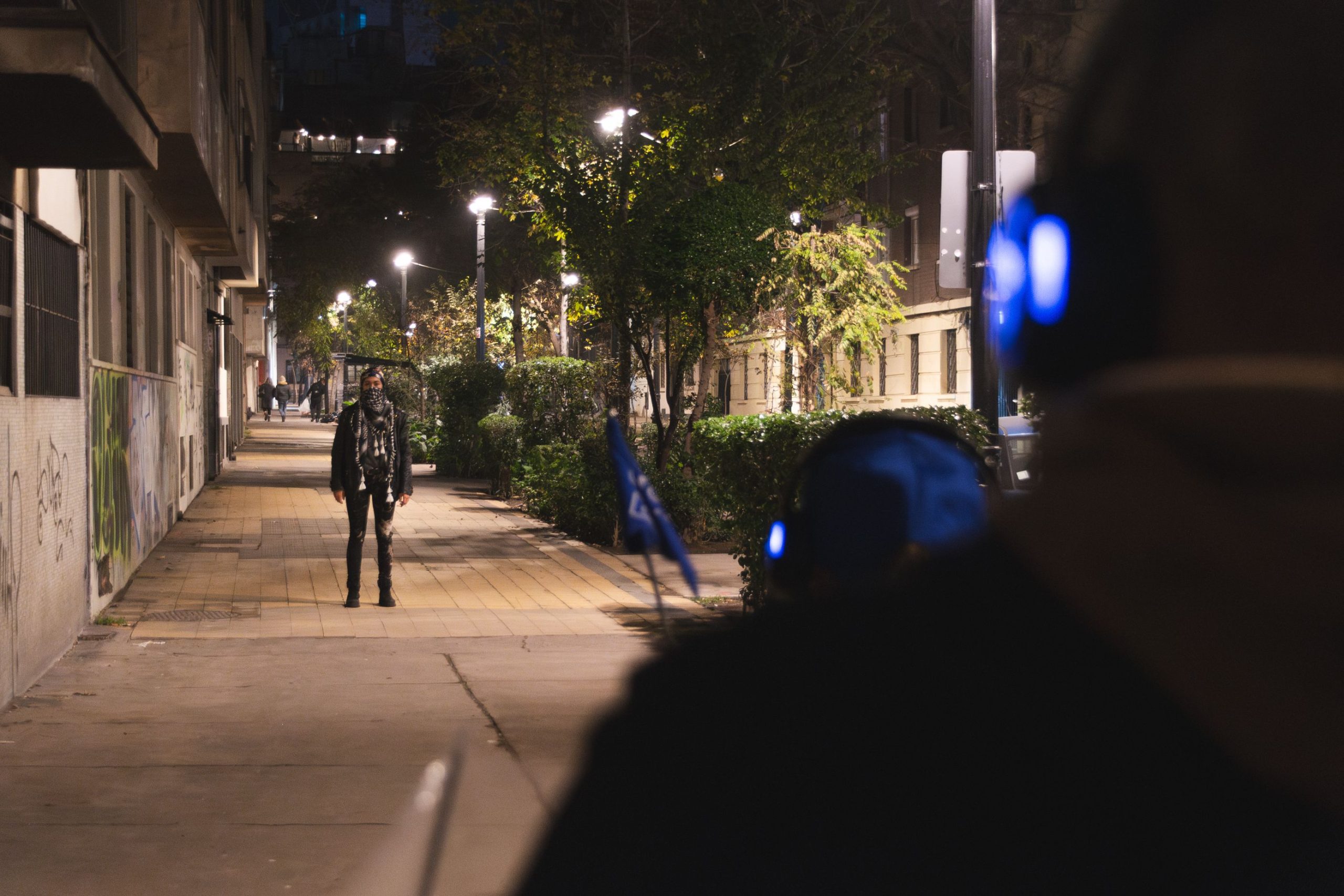
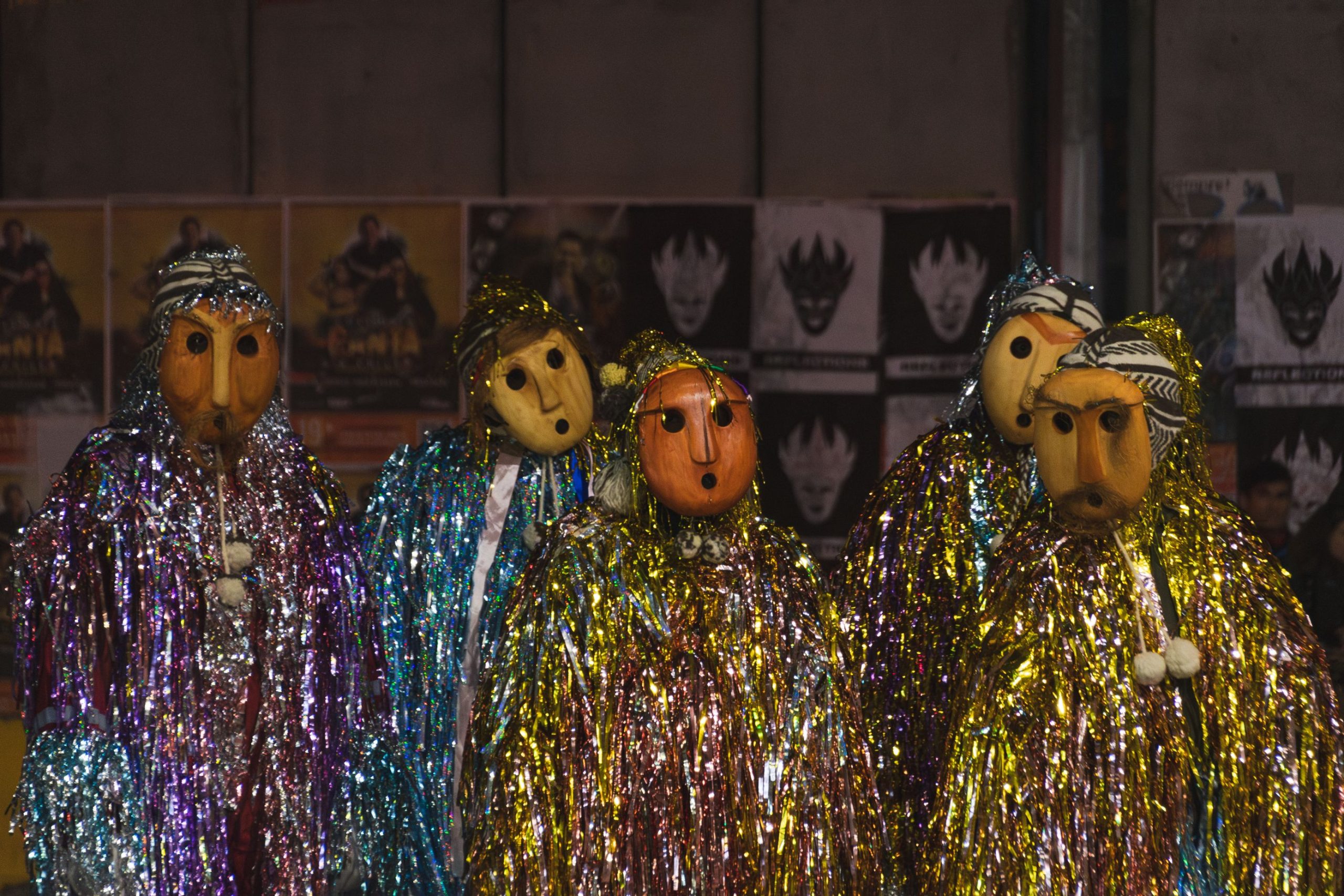
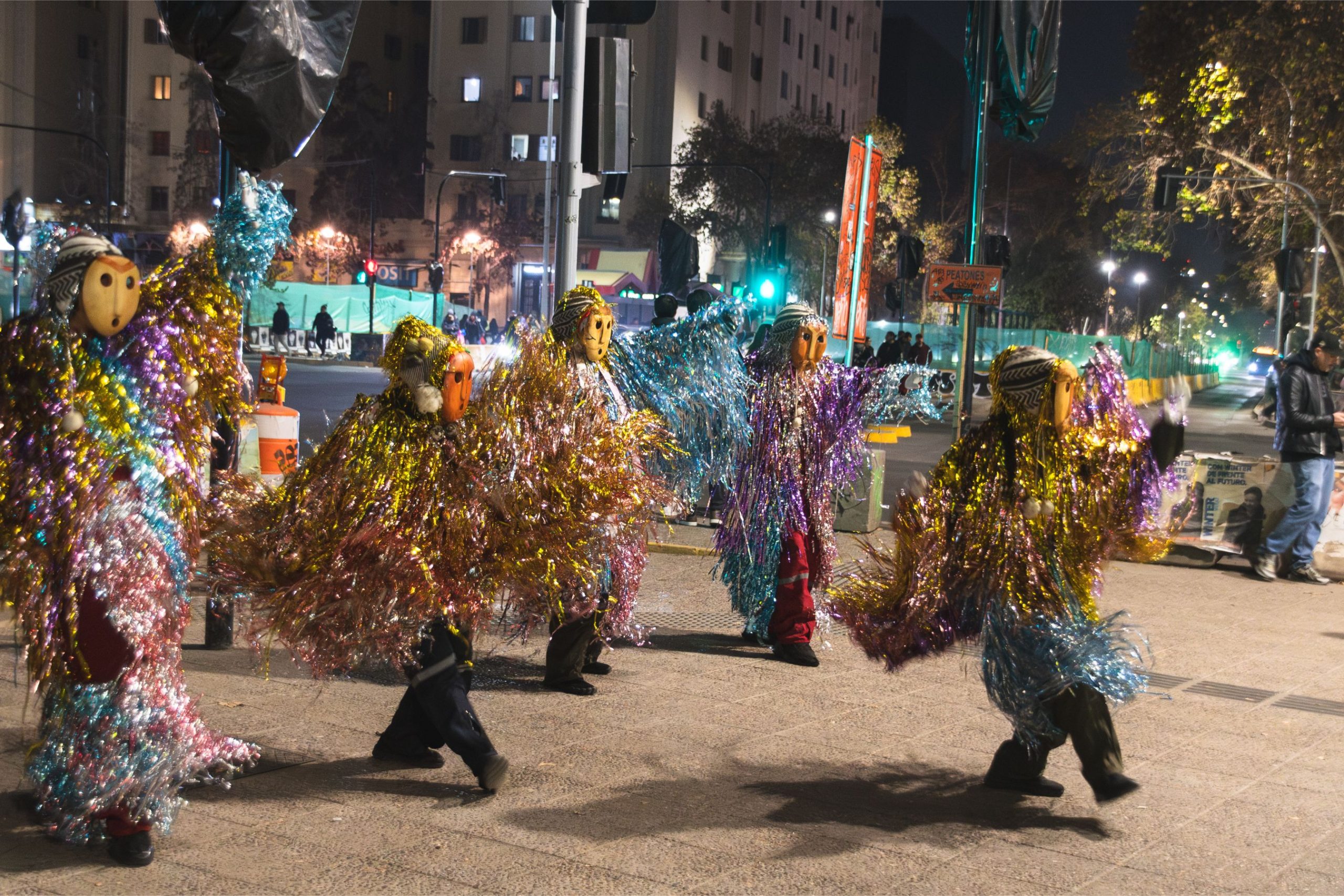
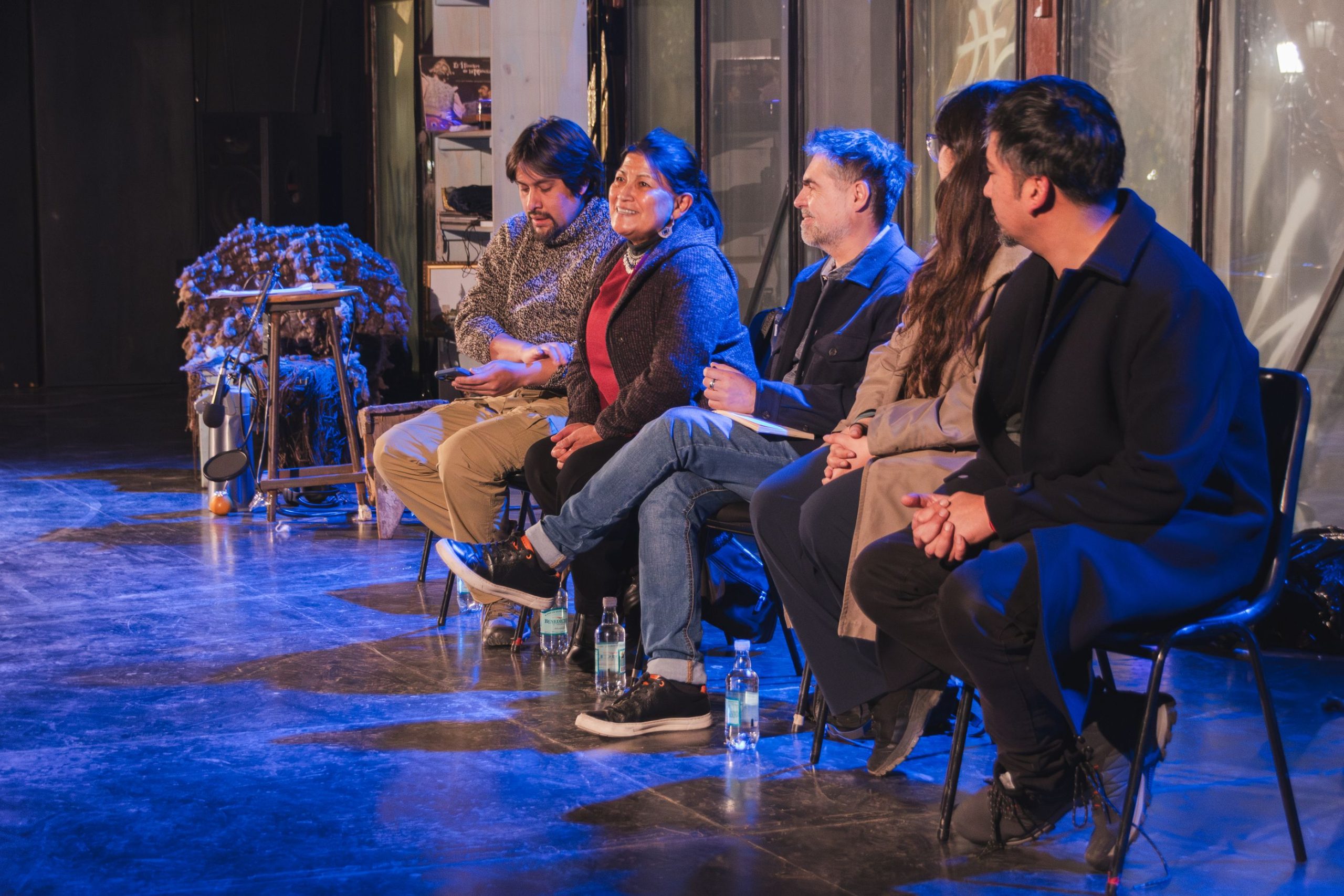

Artistic profile:
Director: Roberto Cayuqueo Martínez
Assistant director: Rayen Morales Cayupan
Research: Olivia Casagrande, Claudio Alvarado Lincopi, Roberto Cayuqueo Martínez.
Production: Camila Velásquez Durán
Integral design: Rayen Morales Cayupan
Costume design: Son de Pérez
Installation: Katerina Quintulem, José Pérez
Digital design: Alejandro Orellana Paredes, Eleonora Giannini
Sound design: Dante Sena Miranda
Illustration design: Millaray Garrido
Cast: Luis Dubó, Rallen Montenegro, Roberto Cayuqueo, Javiera Cayupan Díaz, Noelia Coñuenao Huina, José Pérez
